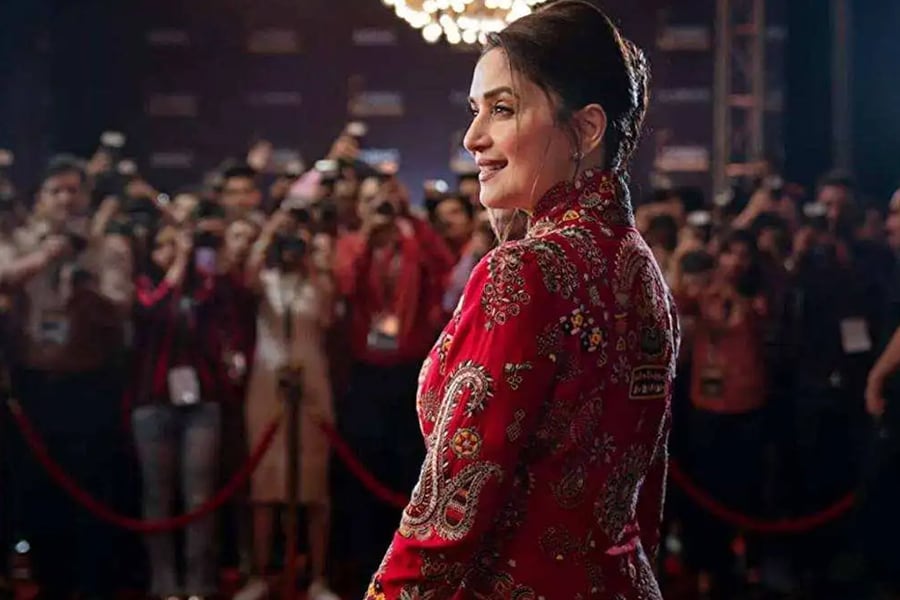
For Madhuri Dixit, 'The Fame Game' felt familiar if not the medium
In an interview last month, Dixit discussed the pervasive nature of stardom and the changes Bollywood has undergone during her career
 The Fame Game,” Dixit’s first regular role in a major streaming series
Image: Netflix
The Fame Game,” Dixit’s first regular role in a major streaming series
Image: Netflix
But for director and screenwriter Sri Rao, Dixit was more than a Bollywood megastar. Rao grew up in a small town in Pennsylvania with parents who once called India home, and Bollywood became a link between the cultures that defined him. Years later, Dixit’s outsize celebrity inspired Rao to create “The Fame Game,” Dixit’s first regular role in a major streaming series.
“It’s hard for me to adequately describe her to folks who aren’t familiar with who she is, because we don’t have a comparable analogy in America,” Rao said about Dixit in a recent phone interview. “I try to say she’s like Julia Roberts and Madonna and Meryl Streep all rolled into one, because her level of stardom is so far beyond anything that we know of in the West.”
“The Fame Game,” which hit Netflix last month, follows the story of Anamika Anand, a Bollywood star with similar qualities to Dixit’s. Both have fame that has persisted over the years, and both are known for being incredible actors and dancers. In the show, Anand’s life appears to be full of stardom and glamour, but when she suddenly goes missing, the facade quickly begins to crumble. The show has been praised by critics and has appeared in Netflix’s Top 10 most-watched list in more than 10 countries, including India, Pakistan and Australia.
Dixit, whom The New York Times described as the “reigning queen of Bombay’s film industry” in 2002 and a “Bollywood goddess” in 2007, has often tried to avoid labels herself. Around the turn of the millennium, she left India for over a decade, choosing to start a family in the United States. For most of that time, she also kept the film industry at arm’s length. In 2011, she came back to India with her husband and two children — and back to the movies. But for fans, the word “comeback” could never stick; her image back home was still so ubiquitous, it was as if she had never left.
In an interview last month, Dixit discussed the pervasive nature of stardom and the changes Bollywood has undergone during her career. These are edited excerpts from the conversation.
©2019 New York Times News Service







